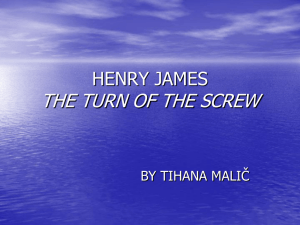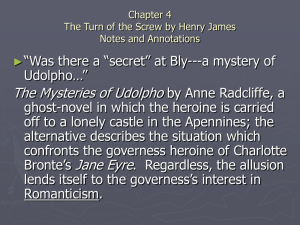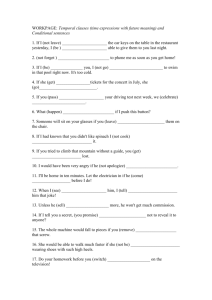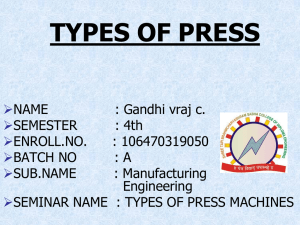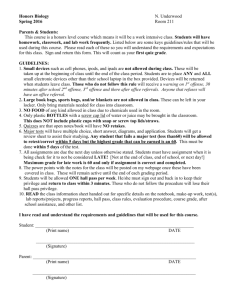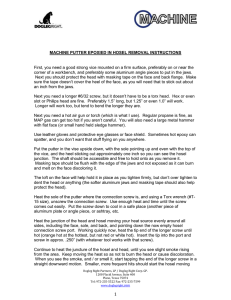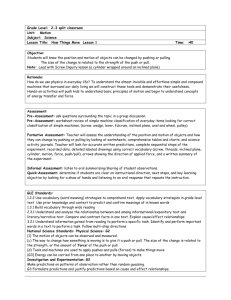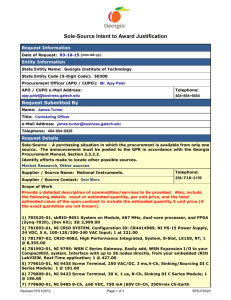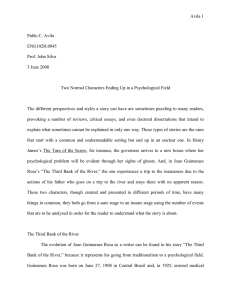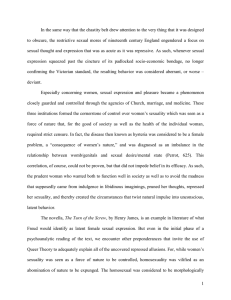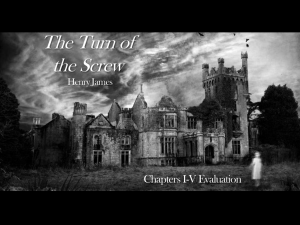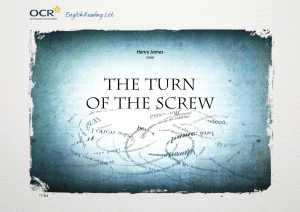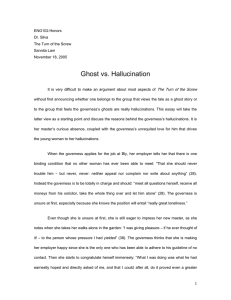In “The Turn of the Screw,” Henry James presents to the reader a
advertisement
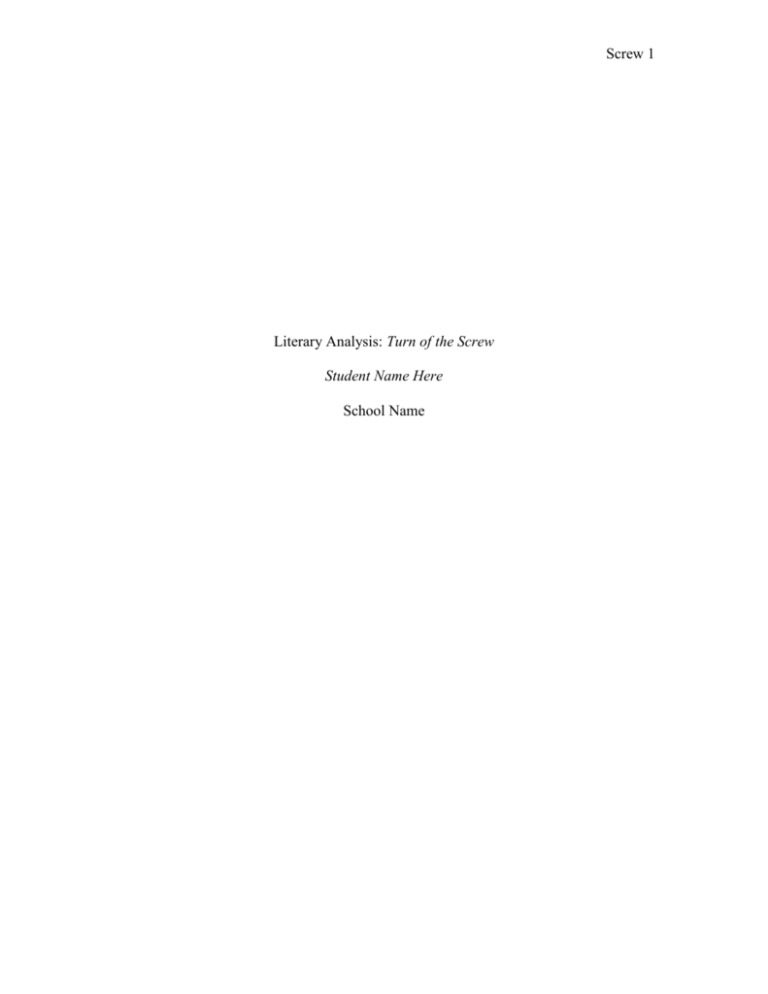
Screw 1 Literary Analysis: Turn of the Screw Student Name Here School Name Screw 2 Literary Analysis: Turn of the Screw In “The Turn of the Screw,” Henry James presents to the reader a story that seems as factual as the recorded ghost sightings that were a major influence for this novel. However, upon further investigation, the reader may begin to wonder about the narrator’s reliability. Considering the setting in which the story is told, the narrator’s own confessions, and pieces of the unconscious’ effect emerging, the governess can be identified as an unreliable narrator. Many people focus on the governess’ story instead of the introduction for their analysis of “Turn of the Screw.” Yet this novel is a frame story, and much enlightening information can be found in Douglas’s own story and the circumstances in which he tells the story. The beginning of the story finds several vacationing families telling ghost tales as entertainment. The reader is not led to believe that any of these tales being told are factual. However, when Douglas offers his story, the reader is expected to understand that the governess is narrating a true account. What makes this story different from the others being told? Is it because the story is narrated by an unknown individual or is it because the story is read from her written statement? (The fact that the ghost tale is put down in words seems to give it more credibility.) Douglas could have easily used the way in Screw 3 which the story was told to convince the listeners that this was one ghost story that was more than just entertainment. \ Screw 4 Works Cited James, Henry. Beidler, Peter.,ed. The Turn of the Screw. 2nd ed. Boston: Bedford/St.Martin’s, 2004. Jameson, Anna. “The occupation of governess is sought merely through necessity.” The Turn of the Screw. 2nd ed. Boston: Bedford/St.Martin’s, 2004. Maurice, Mary. “There is a strong prejudice against governesses.” The Turn of the Screw. 2nd ed. Boston: Bedford/St.Martin’s, 2004. Tyson, Lois. Critical Theory Today: A User-Friendly Guide. 2nd ed. New York: Routledge.
